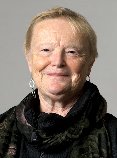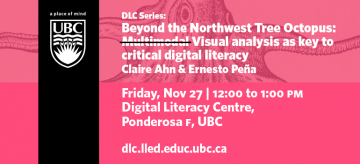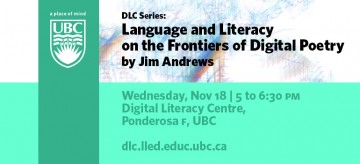DLC Series: Beyond the Northwest Tree Octopus: Multimodal Visual analysis as key to critical digital literacy
Developing young people’s critical web literacy is of utmost significance, especially at a time when there is such ease of accessibility to the Internet. Because of this, some scholars and most curricular documents urge educators to teach young people to be critical navigators and consumers of the web. There is, however, a notable gap between this urgent call and what teachers are doing (or not doing) in the classroom to help better prepare their students to navigate a vast and complex digital world. Most often, educators and teacher librarians have been resorting to the “Northwest Tree Octopus,” a spoof website created with the explicit intent of misleading visitors into believing a non-existing creature —an octopus that lives in trees. The Northwest Tree Octopus site eventually became so popular that teachers often use it to teach students about critically evaluating websites, and has also been used by popular media outlets to expose the gullibility of the so-called ‘web generation’ (e.g., Daily Mail Reporter, 2011; IBTimes Staff Reporter, 2011).
The use of a single resource to develop students’ web literacy is inherently problematic. We would argue that the reason for the gap between the call and implementation of such critical skills rests in part on the lack of resources and tools. Further, we argue the development of critical web literacy cannot simply be conducted through passive analysis of websites, but that there must also be some form of production, a consummatory experience (Dewey, 1934), which aids in developing students’ critical analytical skills. Thus, in this presentation we propose resources and methods of visual analysis and visual modes of production as helpful and effective ways for young students to be critical in the ever growing tech-saturated world.
With the advancement of technology, it has become more difficult to decipher what is real and what is not on the Internet, which can be misleading to the general public, disregarding age or experience (e.g., Estrin, 2015; Schetinger et al., 2015). As a result, we cannot ignore this unavoidable 21st century skill, and must arm our students with better tools.
Bios
Claire Ahn is PhD student in the Department of Language and Literacy Education. Her research interests include film, documentary film, ecoliteracy, visual literacy, and visual rhetoric. Prior to graduate studies she was a high school English for ten years in Alberta.
Ernesto Peña is a PhD candidate in Department of Language and Literacy Education. His research interests include digital humanities, design education, visual semiotics, visual rhetoric and visual literacy. Prior to graduate studies he was a professional designer and professor in Mexico.
DLC Series: Language and Literacy on the Frontiers of Digital Poetry
How is digital media transforming language? The poet-programmer Jim Andrews has been navigating the frontiers of digital literacy since 1996. His site vispo.com is well-known in the international circles of electronic literature as an innovative centre of interactive, multimedia poetry, essays on language and technology, and generative art. In this DLC Series session, Jim will talk about the transformation of language, discuss some of the pedagogical possibilities of digital poetry, and show us some unique multimedia online poetry.
Selected URLs:
The Stir Fry Texts: http://vispo.com/StirFryTexts
Enigma n: http://vispo.com/animisms/enigman
Arteroids: http://vispo.com/arteroids
Nio: http://vispo.com/nio
A Pen: http://vispo.com/nio/pens
Videogames as Literary Devices: http://vispo.com/writings/essays/VideogamesAsLiteraryDevices.pdf
Why I am a Net Artist: http://netartery.vispo.com/?p=1202
Computer Art and the Theory of Computation: http://netartery.vispo.com/?p=1174
Digital Writing Circa 2004: http://vispo.com/writings/essays/DigitalWritingCirca2004.pdf
DLC Talks: Digital Literacies and the Public Voice of Girls in Social Activism

 Please join the Department of Language and Literacy Education in welcoming guest lecturers Dr. Claudia Mitchell from McGill University and UBC Noted Summer Scholar, and Dr. Ann Smith, also from McGill University and the Managing Editor of Girlhood Studies journal. Their talk on Digital Literacies and the Public Voice of Girls in Social Activism will take place at the Digital Literacy Centre (Room 103, Ponderosa F, 2008 Lower Mall) from 3:30 to 5:00 on Wednesday, August 12th, 2015. Continue reading “DLC Talks: Digital Literacies and the Public Voice of Girls in Social Activism”
Please join the Department of Language and Literacy Education in welcoming guest lecturers Dr. Claudia Mitchell from McGill University and UBC Noted Summer Scholar, and Dr. Ann Smith, also from McGill University and the Managing Editor of Girlhood Studies journal. Their talk on Digital Literacies and the Public Voice of Girls in Social Activism will take place at the Digital Literacy Centre (Room 103, Ponderosa F, 2008 Lower Mall) from 3:30 to 5:00 on Wednesday, August 12th, 2015. Continue reading “DLC Talks: Digital Literacies and the Public Voice of Girls in Social Activism”


